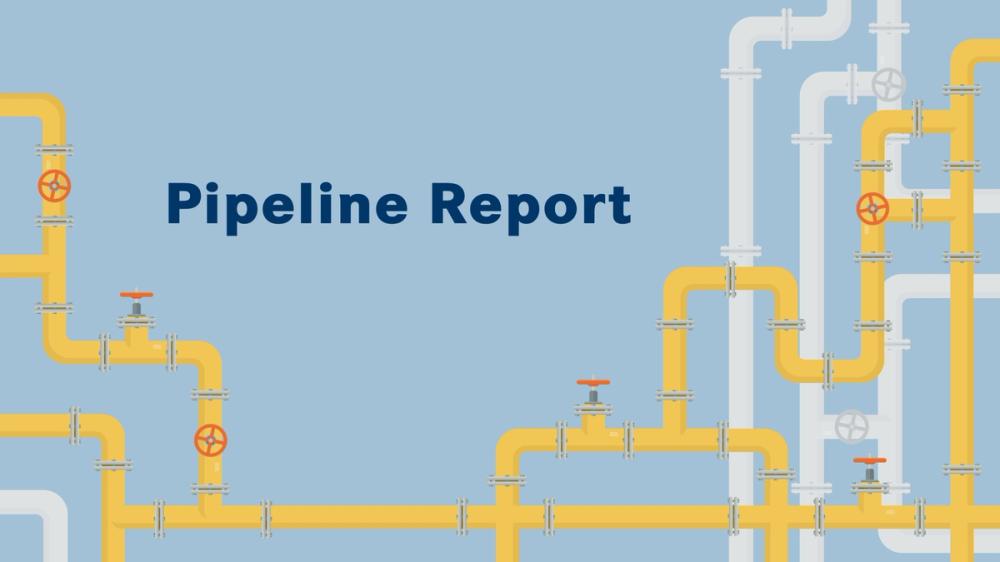
FDA Grants Fast Track Designation to OP-1250 in ER+/HER2- Metastatic Breast Cancer

The FDA has granted a fast track designation to OP-1250 for the treatment of patients with ER-positive, HER2- metastatic breast cancer who have progressed following at least 1 line of endocrine therapy with at least 1 line administered in combination with a CDK4/6 inhibitor.
The FDA has granted a fast track designation to OP-1250 for the treatment of patients with ER-positive, HER2- metastatic breast cancer. The oral complete estrogen receptor (ER) antagonist (CERAN) and selective ER degrader is indicated for patients who have progressed following at least 1 line of endocrine therapy with at least 1 line administered in combination with a CDK4/6 inhibitor.1
OP-1250 is under investigation as a single agent in an ongoing phase 1/2 clinical trial (NCT04505826) and in combination with palbociclib (Ibrance) for patients with recurrent, locally advanced, or metastatic ER-positive, HER2- breast cancer in a phase 1b trial (NCT05266105).2,3
“Receiving fast track designation from the FDA for OP-1250 is an important milestone for the development program and underscores OP-1250’s potential clinical utility to address a significant unmet medical need in women living with advanced ER+/HER2- breast cancer,” Sean P. Bohen, MD, PhD, president and chief executive officer of Olema Oncology, said in a press release. “We look forward to working closely with the FDA to optimize and expedite the development program, with the goal of making OP-1250 available to patients sooner.”
Earlier in November 2021, the company announced that findings from the dose-escalation portion of the open-label phase 1/2 study demonstrated favorable pharmacokinetics, tolerability, and efficacy.
“We successfully delivered on our objectives for the dose-escalation stage of our ongoing phase 1/2 trial of OP-1250, with the desired pharmacokinetics, favorable tolerability, and early but clear efficacy signals. We are particularly encouraged by the responses observed in patients who had received multiple prior lines of therapy and harbored ESR1 activating mutations, demonstrating that OP-1250 is an active drug and achieved sufficient exposure levels to block the ER-mediated cancer cell growth and proliferation signal,” Bohen said.4
As of November 1, 2021, 41 patients with recurrent, locally advanced, or metastatic ER-positive, HER2-negative breast cancer were enrolled across 7 dose cohorts administered daily: 30 mg, 60 mg, 90 mg, 120 mg, 150 mg, 210 mg, and 300 mg.
The population was heavily pretreated, with 95% of patients previously receiving a CDK4/6 inhibitor and 22% having received at least 2 prior CDK4/6 inhibitors. Additionally, 68% of patients received prior fulvestrant (Faslodex) and 42% received prior chemotherapy in the advanced setting.
Patients received a median of 3 prior lines of anti-cancer therapy and 2 prior lines of endocrine therapy in the advanced setting. Investigators assessed circulating tumor DNA from 39 patients at baseline and detected ESR1 mutations in 49%.
Pharmacokinetic analyses demonstrated dose-proportional increases in OP-1250 exposures across all dose levels, high oral bioavailability, and steady-state plasma levels with little peak-to-trough variability. At doses of 60 mg and above, OP-1250 surpassed exposures within the predicted thresholds for maximal anti-tumor efficacy based on preclinical models.
Moreover, no dose-limiting toxicities occurred across dose levels and a maximum tolerated dose was not reached. Most adverse effects (AEs) were grade 1 or 2 across dose levels. The most common investigator-assessed treatment-related AEs were nausea (49%), fatigue (34%), vomiting (22%), and headache (17%).
Investigators observed no clinically significant bradycardia, ocular toxicities or diarrhea. The recommended phase 2 dose range of 60 mg to 120 mg once daily was identified for further evaluation.
Three of 24 efficacy-evaluable patients had partial responses (PRs), including 2 confirmed PR and 1 unconfirmed PR in a patient who had robust target lesion reduction of 100%. Notably, all 3 responses occurred in patients with ESR1 mutations and who had previously received CDK4/6 and aromatase inhibitors, and fulvestrant. Four response-eligible patients had target lesion reductions of greater than 30%.
Across all doses, the objective response rate (ORR) was 8% (2/24) and the clinical benefit rate (CBR) was 29% (7/24). For the dose levels within the recommended phase 2 dose range, the ORR was 17% (2/12) and the CBR was 46% (6/13).
As of the data cut-off date, 32% of patients (13/41) remained on treatment with efficacy data continuing to mature.
References
- Olema Oncology Receives FDA Fast Track Designation for OP-1250 for the Treatment of ER+ / HER2- Metastatic Breast Cancer. News release. Olema Pharmaceuticals, Inc. July 21, 2022. Accessed August 2, 2022.
https://bit.ly/3BvBfFo - A dose escalation/expansion study of oral OP-1250 in subjects with advanced and/or metastatic HR+, HER2- breast cancer. ClinicalTrials.gov. Updated October 25, 2021. Accessed August 2, 2022.
https://clinicaltrials.gov/ct2/show/NCT04505826 - A phase 1 study of oral OP-1250 in combination with palbociclib in HR+/HER2- breast cancer patients. ClinicalTrials.gov. Updated March 4, 2022. Accessed August 2, 2022.
https://clinicaltrials.gov/ct2/show/NCT05266105 - Olema Oncology announces first clinical data on OP-1250 in advanced ER+ / HER2- breast cancer. News release. Olema Pharmaceuticals, Inc. November 30, 2021. Accessed August 2, 2022.
https://bit.ly/3ztiOyh






































